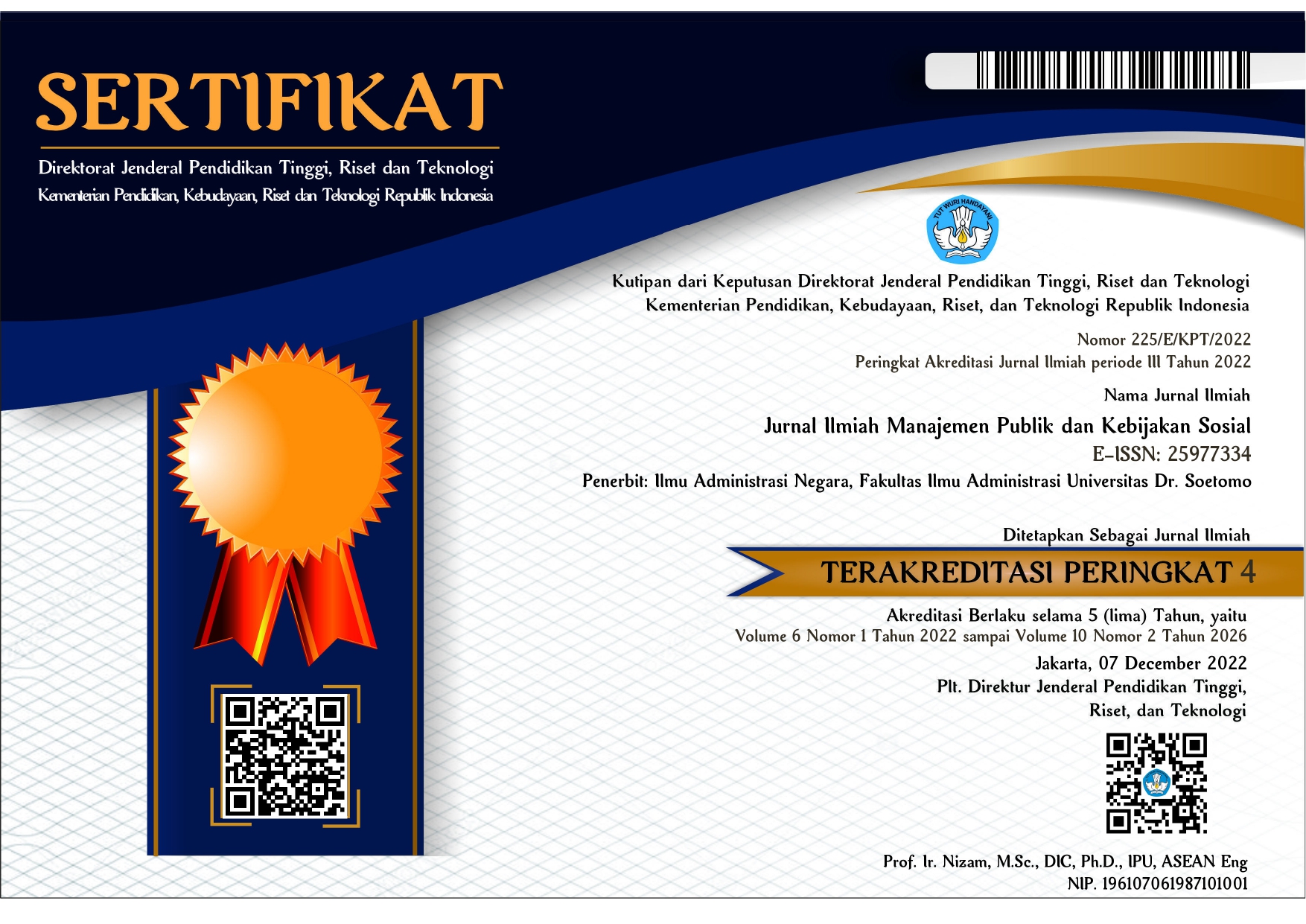Evaluasi Kebijakan Pembangunan Frontage Roads Dalam Mengurangi Kemacetan Lalu Lintas Di Kota Surabaya
 Abstract views: 647
,
Abstract views: 647
,
 PDF downloads: 683
PDF downloads: 683
Abstract
The number of motorized vehicles in major cities in Indonesia is increasing, including also the city of Surabaya with a population of more than 3 (three) million, which tends to have an impact on the increase in traffic density. Increasing the density of traffic will increase the number of vehicles, causing a decrease in vehicle speed compared to the planned speed for each function and role of the road.
This study aims to determine the volume of vehicles or traffic flows that pass on the frontage road road. Furthermore, the purpose of this study is to provide an overview of the performance of the road after the opening of the frontage road on both the east and the west side.
 This evaluation examines the benefits of operating frontage road, how useful it is to reduce traffic congestion on Jalan Wonokromo and Jaan Ahmad Yani. Jalan Wonokromo and Jalan Ahmad Yani are two-way primary arterial roads (with separating directions) as a link between the cities of Surabaya and Sidoarjo and Mojokerto. The results of this evaluation are expected to be useful as a material consideration, by policy makers in the field of transportation both in terms of management and traffic engineering.
Authors who publish with JIMPKS: Jurnal Ilmiah Manajemen Publik dan Kebijakan Sosial agree to the following terms:
-
Authors retain copyright and grant the journal right of first publication with the work simultaneously licensed under a Creative Commons Attribution License (CC BY-SA 4.0) that allows others to share the work with an acknowledgment of the work's authorship and initial publication in this journal.
-
Authors are able to enter into separate, additional contractual arrangements for the non-exclusive distribution of the journal's published version of the work (e.g., post it to an institutional repository or publish it in a book), with an acknowledgment of its initial publication in this journal.
-
Authors are permitted and encouraged to post their work online (e.g., in institutional repositories or on their website) prior to and during the submission process, as it can lead to productive exchanges, as well as earlier and greater citation of published work.










